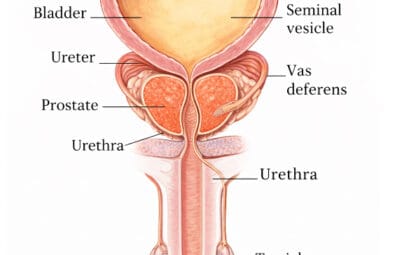In a landmark move for UK cancer care, the NHS has become the first healthcare system in Europe to offer patients a revolutionary cancer treatment that uses sound waves not surgery to destroy tumours, reported in the Times today.
Known as histotripsy, this cutting-edge, non-invasive procedure targets cancerous tissue using pulsed ultrasound energy to create microscopic bubbles inside the tumour. These bubbles rapidly collapse, breaking apart the cancer cells without harming nearby healthy tissue.
Unlike traditional cancer treatments that often involve surgery, chemotherapy or radiation, histotripsy requires no incisions, no drugs, and no prolonged recovery. For patients with liver cancer, it could be life-changing.
A 30-Minute Outpatient Procedure
Patients receiving histotripsy will attend a single outpatient appointment — sometimes lasting as little as 30 minutes. The treatment feels similar to an ultrasound scan and can be completed without the need for a hospital stay. It’s already being offered at Addenbrooke’s Hospital in Cambridge, with the aim of expanding access across the country.
Dr Teik Choon See, an interventional radiologist at Addenbrooke’s, described the technique as a “game-changer” in terms of both patient experience and clinical safety. While patients may feel some discomfort after the procedure, the risk of complications is significantly lower than that of heat-based ablation or surgery.
A Major Leap Forward for Liver Cancer Care
Liver cancer is one of the fastest-rising cancer types in the UK. With just 13% of patients surviving five years after diagnosis, there’s an urgent need for innovative treatments. Experts are hopeful that histotripsy will offer a safer and more accessible option for many patients, particularly those who are unsuitable for surgery.
This technology, developed by US firm HistoSonics and brought to the UK with support from the Li Ka Shing Foundation, has been approved under the MHRA’s Innovative Devices Access Pathway — a fast-track approval process for safe, high-impact medical technologies.
Health Secretary Wes Streeting praised the early rollout:
“By cutting red tape, we’ve allowed this non-invasive, life-saving treatment to reach patients years earlier than planned.”
Contact Us Now To ClaimLooking Ahead: Broader Use Across Cancer Types
Trials are now under way to evaluate histotripsy for kidney and pancreatic cancers, with researchers optimistic that this treatment could eventually benefit a wider range of cancer patients. As Fiona Carey, a kidney cancer patient and patient advisor, put it:
“For those for whom surgery is no longer an option, this could make all the difference.”
Innovative Care Must Be Matched with Early Diagnosis
While the NHS continues to lead in bringing transformative treatments to patients, early and accurate diagnosis remains a critical piece of the puzzle. Despite such advances, there are still frequent reports of cancer symptoms being misinterpreted, ignored, or delayed — often with tragic consequences.
At Hutcheon Law, we understand the devastating impact that delayed liver cancer diagnosis can have on patients and their families. When warning signs are missed or investigations are not carried out promptly, opportunities for early treatment may be lost, resulting in reduced survival rates and more invasive treatment options.
Late Cancer Diagnosis of the Liver?
Our specialist solicitors support clients in pursuing compensation for medical negligence arising from delayed or missed cancer diagnoses. If you or a loved one has suffered harm because of a delay in diagnosing cancer, you may be entitled to make a legal claim.




